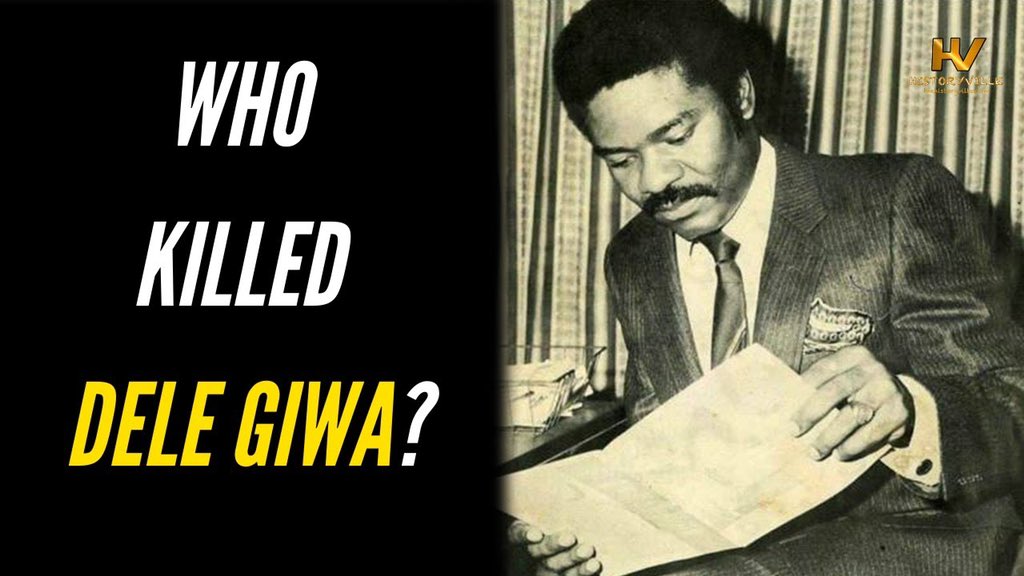The recent reaffirmation by former military president, General Ibrahim Babangida (retd.), denying involvement in the assassination of veteran journalist Dele Giwa, has reignited discussions on Nigeria’s long history of unresolved political murders. Giwa, the founding Editor-in-Chief of Newswatch, was assassinated on October 19, 1986, via a parcel bomb—a crime that remains shrouded in mystery and controversy decades later.
Babangida’s autobiography, A Journey in Service, presented in Abuja, further emphasizes the unresolved nature of the case, mirroring several other political assassinations in Nigeria’s history that remain uninvestigated or inconclusively closed.
Dele Giwa: The First Parcel Bomb Assassination in Nigeria
Dele Giwa’s murder sent shockwaves through Nigeria’s media and political landscape. The circumstances surrounding his death pointed to a high-level conspiracy, particularly as he was a vocal critic of the Babangida administration. Before his assassination, Giwa had been accused of attempting to instigate a socialist revolution, an allegation that raised suspicions about the government’s potential role in silencing him. However, despite multiple probes—including the Obasanjo administration’s efforts through the Oputa Panel—his murder remains unresolved.
Chief Bola Ige: A Minister Slain in His Home
Another tragic case of unresolved political murder is that of Chief Bola Ige, a former Attorney General of the Federation and Minister of Justice. On December 23, 2001, Ige was assassinated in his home in Ibadan, Oyo State.
His murder shocked the nation, considering he was the highest-ranking legal officer in the country at the time. Although several suspects were arrested and interrogated, no one was ever convicted, and the case remains an open wound in Nigeria’s history of political violence.
Ige’s murder, like Giwa’s, was deeply political. His strong stance on political matters, particularly within the Yoruba sociopolitical group, Afenifere, and his role in the administration of President Olusegun Obasanjo, had placed him in the crosshairs of many political enemies. Despite public outcry and an initial investigation, his killers have never been brought to justice, reinforcing the narrative that politically motivated killings in Nigeria often go unresolved.
Funsho Williams: A Gubernatorial Hopeful Silenced
The murder of Funsho Williams, a Lagos gubernatorial aspirant under the People’s Democratic Party (PDP), remains one of the most shocking in recent Nigerian political history. On July 27, 2006, Williams was found strangled in his Lagos residence. Given his growing political influence and chances of securing the Lagos State governorship, suspicions immediately arose regarding the motivation behind his murder.
Authorities arrested several individuals, including political figures and associates, but no conclusive evidence was ever found to convict anyone. The investigation eventually fizzled out, leaving many unanswered questions and reinforcing the pattern of political assassinations going unresolved.
Harry Marshall: A Political Opponent Gunned Down
A vocal critic of the Obasanjo administration and an opposition politician, Chief Harry Marshall was assassinated in Abuja on March 5, 2003. His murder bore all the hallmarks of a politically motivated execution. Like others before him, no one was held accountable, and the crime was soon overshadowed by the political landscape of the time.
The Culture of Impunity and the Need for Justice
The common thread among these unresolved murders is the apparent lack of political will to conduct thorough investigations and prosecute those responsible. The failure to solve high-profile assassinations fosters a culture of impunity, where politically motivated killings are carried out without fear of consequences.
Despite multiple government commissions and investigative panels, including the Oputa Panel, the Nigerian justice system has largely failed to bring closure to these cases. Some of the key challenges include political interference, corruption within law enforcement agencies, lack of forensic capabilities, and witness intimidation.
Hope for Future Investigations?
The continued conversations around Dele Giwa’s murder and Babangida’s recent statements underscore the fact that unresolved political murders remain a scar on Nigeria’s democratic history. While some hope that advances in forensic science and increased global attention to human rights abuses might someday bring justice, the reality remains grim.
For Nigeria to break free from this cycle, there must be strong political will, an independent judiciary, and a transparent investigative process.
Unless these conditions are met, the specter of unsolved political assassinations will continue to haunt the nation, discouraging free speech and democracy.
The assassination of Dele Giwa, Chief Bola Ige, Funsho Williams, and Harry Marshall—among others—exemplifies Nigeria’s long history of political violence and the state’s inability to secure justice for its victims.
While Babangida may deny involvement in Giwa’s murder, the truth remains buried under decades of secrecy and inaction.
Until Nigeria takes decisive steps to confront this dark past, history is bound to repeat itself, and the voices of democracy will continue to be silenced in shadows.

